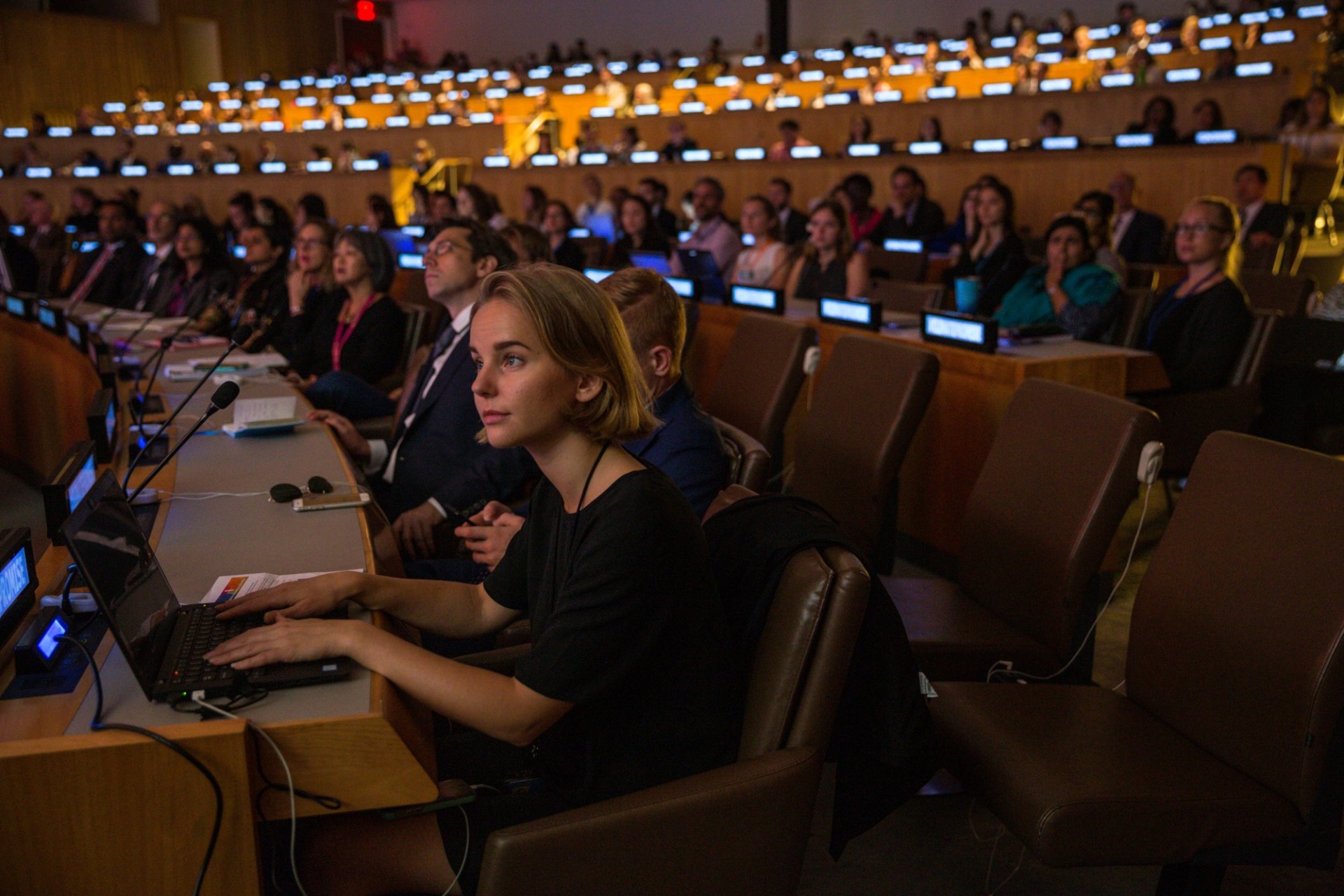
There is little doubt: The United Nations is a workplace with a worldwide reputation. The UN's mission offers challenging and complex, yet meaningful work. It attracts well-trained and highly motivated professionals from across the globe. Many of them are convinced cosmopolitans who aim at making the world a better place. Often, they dream of working in this international and prestigious working environment, before being assigned to their position.
How far do – or must – they go for this career goal?
In my book Privileged Precarities, I show that those who aspire to a career at the UN often must be ready to show their commitment by accepting job insecurity for many years.
The story of one of my interviewees illustrates what many young professionals experience when making their first step into the UN world. By accepting flexible work arrangements, they underline their commitment to a good cause.
Ana was a successful legal professional in South America when she decided to move her career forward. She was happy in her job, but given the competitive job market, she felt that she needed more experience. She wanted “to see the world” and enrolled in a master’s program in Geneva. After graduating, she started an internship at the UN in Geneva. This meant going “from a full and well-paid position to unpaid work.” As Switzerland’s restrictive immigration policy made it hard to enter the Swiss labor market, Ana decided to pursue the UN career path. After another internship, she became a consultant – and thereby entered the limbo of short-term external contracts. Working as non-staff personnel meant unpaid holidays and constant insecurity regarding her future. Only after several years, she passed the exam of the UN’s Young Professional Program (YPP). She became a full UN staff. Today, she is a program manager at a UN organization addressing environmental solutions.
Ana’s story ended successfully, while many of her former colleagues are still external contractors. Notably, in program-oriented UN organizations, there is an increasing tendency to build a project-based workforce. This is no secret at the UN. An internal report estimates that 45 percent of the UN workers worldwide are consultants. For extended periods, they perform tasks similar to those of staff, have an official e-mail address, and use the organization’s office facilities. However, they are not protected against unemployment – a clear contradiction to the UN’s moral fundament, the Universal Declaration of Human Rights’ Article 23, that spells out key norms about decent work.
These circumstances are not only intolerable due to obvious contradictions to the UN’s moral claim, but also research shows that job insecurity affects work performance. In everyday life, this means: Instead of using their energy for performing well on the job, UN workers who are on temporary assignments and operate on a project-by-project basis, are concerned with the sustainability of their positions. Especially those lacking a working permit in the duty station, and those whose right to remain in the country is tied to a continuing UN contract, have no choice but to invest their time and energy into activities geared toward securing the next gig: constantly screening available positions, applying for jobs, and networking. Sometimes they are involved in creating new projects, “carved out of existing budgets”, as formulated by a consultant.
The second key element for a successful UN career lies in the ability to combine the organizational narrative with one’s individual story. My research shows how individuals respond to institutional expectations by presenting well-crafted stories to underline their uniqueness while always carefully weighing their words to correspond to the organizational ideal of meritocracy. At the end of the day, they are aware of the relative privilege that comes with a job at the UN. UN salaries and career prospects are, in comparison to many other career paths, generous.
This shows that also at a time-honored organization such as the UN, the ideals and realities of our post-modern knowledge-driven economy are well established. Flexible project work and unsteady employment are considered to be “the new normal". And it reveals once again the UN as an elite project: Only those who can afford unpaid internships, as well as periods of flexible work with insecure futures, can get a job at the UN. Both should be of major concern to an organization that promotes moral goals such as equality and fairness as its core values. What is more, the COVID-19 pandemic has exposed the vulnerability of non-staff personnel, both consultants and interns.
Early career professionals accept flexible working conditions with the aim to do good at the UN. Yet, it is doubtful that the UN benefits from this situation in the long run. High-rank decision-makers at the UN are well-advised not only to address the changing needs of staff members in the new world of work, but also to improve the working conditions of its non-staff personnel to be prepared for future challenges and to successfully implement the vision of the UN in the nearby future.
About the author
Linda Mülli, Ph.D., is a business anthropologist associated with the Universities of Basel and the LMU Munich. She works in policy consulting. This post is based on the author’s book Privileged Precarities. An Organizational Ethnography of Early Career Workers at the United Nations (2021, University of Chicago Press). Connect on LinkedIn or follow on Twitter @LMMuelli.
The views and opinions expressed in this think-piece are those of the authors and do not necessarily reflect the official policy or position of SIPA or Columbia University.
